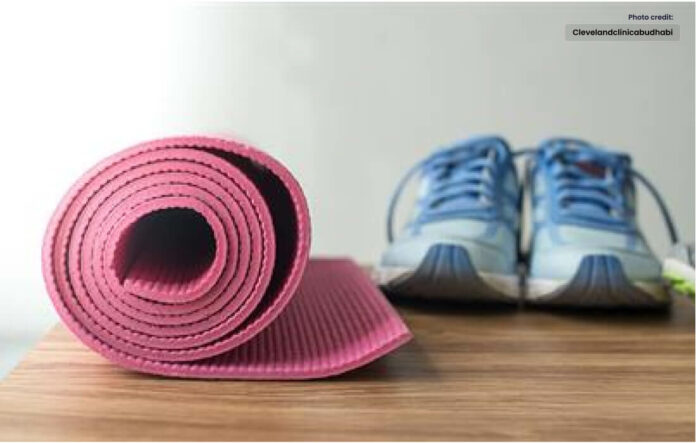Discover the optimal times to exercise during Ramadan.
Ramadan is a holy month for Muslims all over the world, characterized by fasting from dawn to sunset.While the primary focus is on spiritual reflection and self-discipline, maintaining a healthy lifestyle is equally important. Incorporating exercise into your routine during Ramadan can be challenging, but finding the right time can make a significant difference so set your optimal time for Exercise During Ramadan.
The Pre-Dawn Workout: Suhoor Sweats:
Engaging in a workout session before the pre-dawn meal (Suhoor) can be highly effective. This time, known as the “Golden Hour,” allows you to hydrate, eat a light meal, and then perform a moderate workout. This approach ensures that you kickstart your metabolism before the day of fasting begins.
Benefits of Pre-Dawn Workouts:
- Increased Metabolism: Exercising before Sehri can boost your metabolism, helping you burn more calories throughout the day.
- Enhanced Focus and Alertness: Starting your day with exercise can sharpen your mental focus and increase your productivity during the fasting hours.
- Improved Mood: Physical activity releases endorphins, which can elevate your mood and reduce stress, helping you stay positive during Ramadan.
Midday Lull: The Afternoon Exercise Slump:
The period just before Iftar (breaking the fast) can be challenging due to dehydration and low energy levels. However, a light workout during the midday slump can help revitalize your energy. Focus on activities such as stretching, yoga, or a brisk walk to keep your body active without causing excessive fatigue.
Iftar to Tarawih: Nourishment and Night Workouts:
After breaking your fast, it’s crucial to replenish your body with nutritious food and hydrate adequately. Following Iftar, you can engage in a more intense workout, including strength training or cardiovascular exercises. This not only helps burn calories but also takes advantage of the energy boost from the evening meal.
Additionally, the time between Iftar and the Tarawih prayers provides an opportunity for a post-meal walk, promoting digestion and aiding in maintaining overall fitness.
Benefits of Night Workouts:
- Relaxation and Stress Relief: Exercising after Taraweeh prayers can help you unwind and relieve stress accumulated throughout the day, promoting relaxation and a sense of well-being.
- Community Support: Joining a gym or exercise group that offers evening sessions during Ramadan can provide a sense of community and support, making it easier to stay motivated and committed to your fitness goals.
- Improved Sleep Quality: Moderate evening exercise has been shown to promote better sleep quality, helping you rest and recharge for the next day of fasting and prayer.
Listening to Your Body: Individualized Timing:
Ultimately, the optimal time for exercise during Ramadan varies from person to person. Listen to your body and choose a time that aligns with your energy levels and daily schedule. Whether it’s in the morning, afternoon, or evening, consistency is key.
Tips for Ramadan:
Here are some tips to help you make the most of the holy month of Ramadan:
Suhoor (Pre-dawn Meal):
- Balanced Nutrition: Include complex carbohydrates, protein, and healthy fats for sustained energy throughout the day.
- Hydration: Drink plenty of water to prevent dehydration during the fasting hours.
- Avoid Caffeine: Limit caffeinated beverages as they can contribute to dehydration.
Iftar (Breaking the Fast):
- Dates and Water: Break your fast with dates and water as per tradition, followed by a balanced meal.
- Hydrate Well: Rehydrate with water, and include hydrating foods like fruits and soups in your Iftar.
- Moderation: Practice portion control to avoid overeating and indigestion.
Spiritual Practices:
- Increased Prayer: Use the extra time during Ramadan for increased prayer, reflection, and reading of the Quran.
- Charity: Engage in acts of kindness and charity to strengthen your sense of community and compassion.
- Nightly Tarawih Prayers: Attend or perform the nightly Tarawih prayers for added spiritual fulfillment.
Health and Well-being:
- Moderate Exercise: Incorporate light to moderate exercise during non-fasting hours for maintaining physical health.
- Adequate Sleep: Ensure you get enough rest to support overall well-being during the month.
- Stress Management: Practice mindfulness, meditation, or deep breathing to manage stress.
Time Management:
- Effective Planning: Plan your meals and activities to make the most of your time during fasting and non-fasting hours.
- Prioritize Responsibilities: Identify and prioritize essential tasks to manage your time effectively.
Social Connections:
- Family and Community: Use this time to strengthen bonds with family and community through shared meals and activities.
- Virtual Connections: If separated from loved ones, stay connected through virtual platforms to maintain a sense of community.
Gratitude and Reflection:
- Gratitude Journaling: Keep a gratitude journal to reflect on the positive aspects of each day.
- Self-Reflection: Use this time for self-reflection, personal growth, and setting positive intentions.
Special Considerations:
- Consult Healthcare Professionals: If you have health concerns, consult with healthcare professionals for personalized advice on fasting.
- Adjusting Workouts: Modify exercise routines during fasting hours and consider more suitable times for intense workouts.
Finding Your Perfect Time
The optimal time for exercise during Ramadan ultimately depends on individual preferences, energy levels, and daily schedules. Whether it’s the quiet hours before dawn, the social setting of an evening workout, the midday flexibility advantage, or a calming night-time routine, finding the right time ensures you can maintain your fitness goals without compromising your spiritual commitments. Listen to your body, stay hydrated, and consult with healthcare professionals if needed to create a personalized fitness plan that aligns with the holy month of Ramadan.




